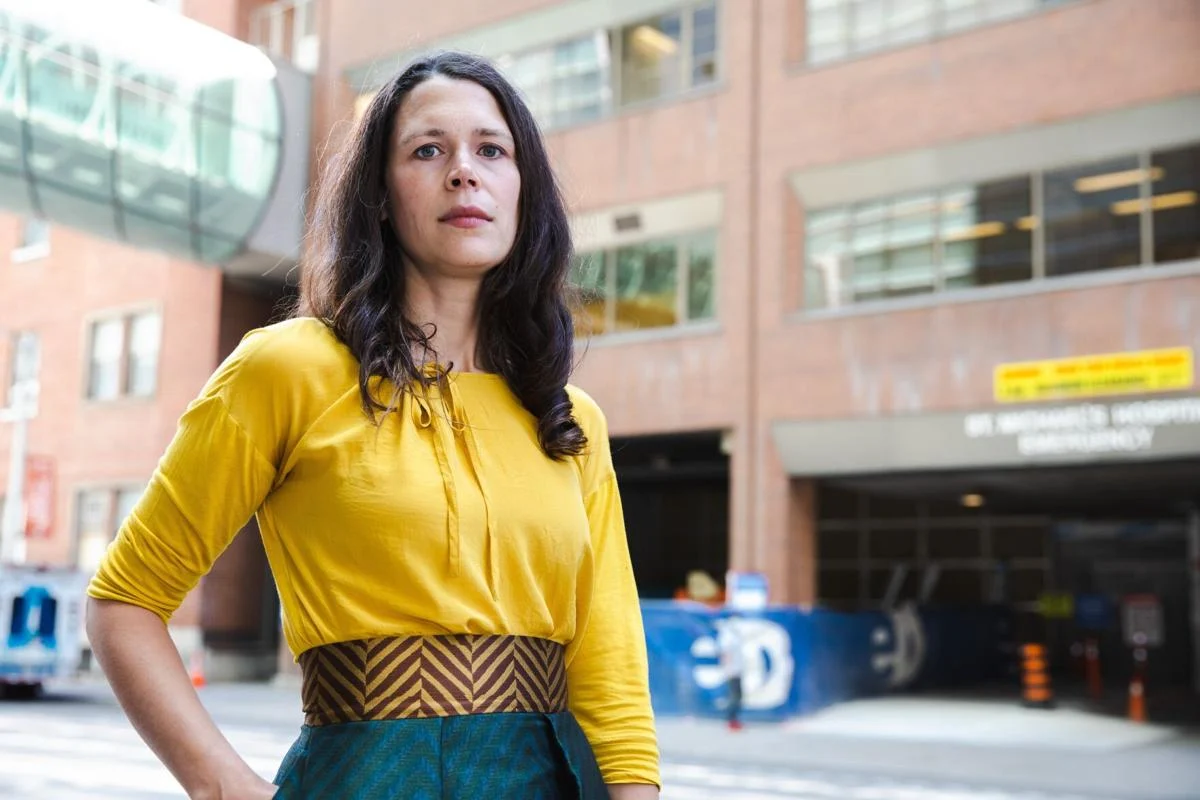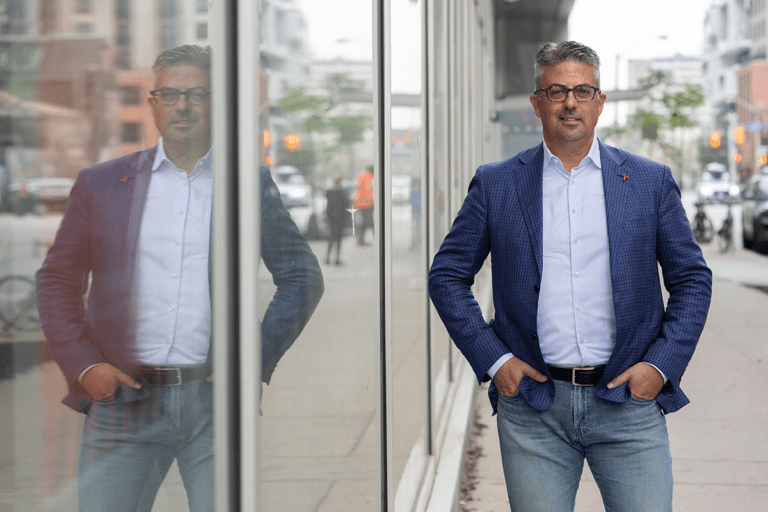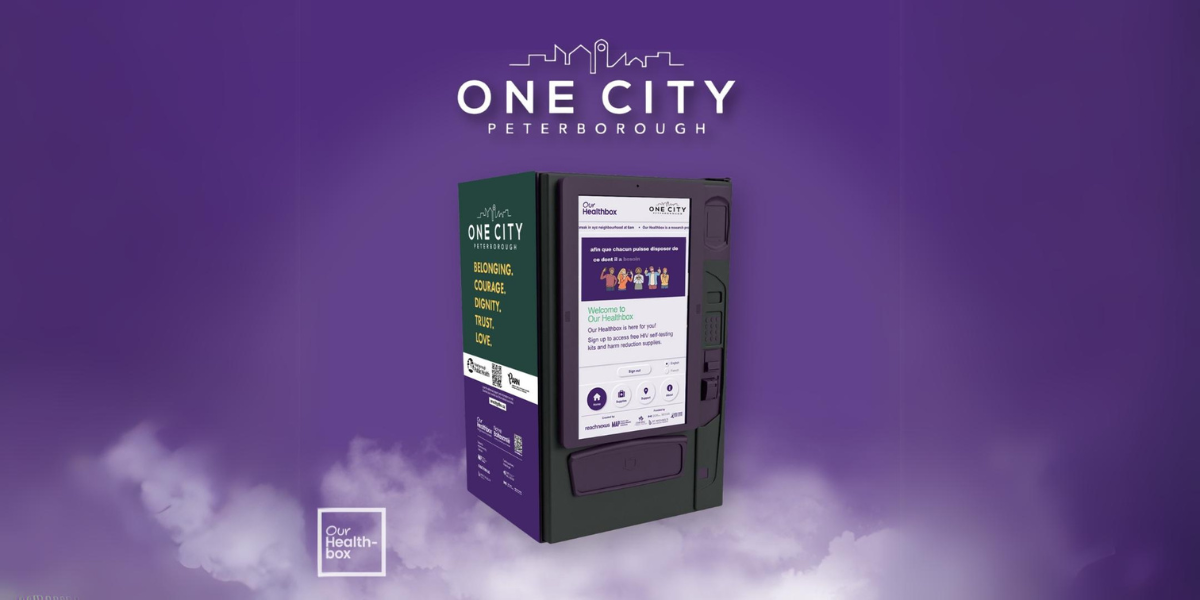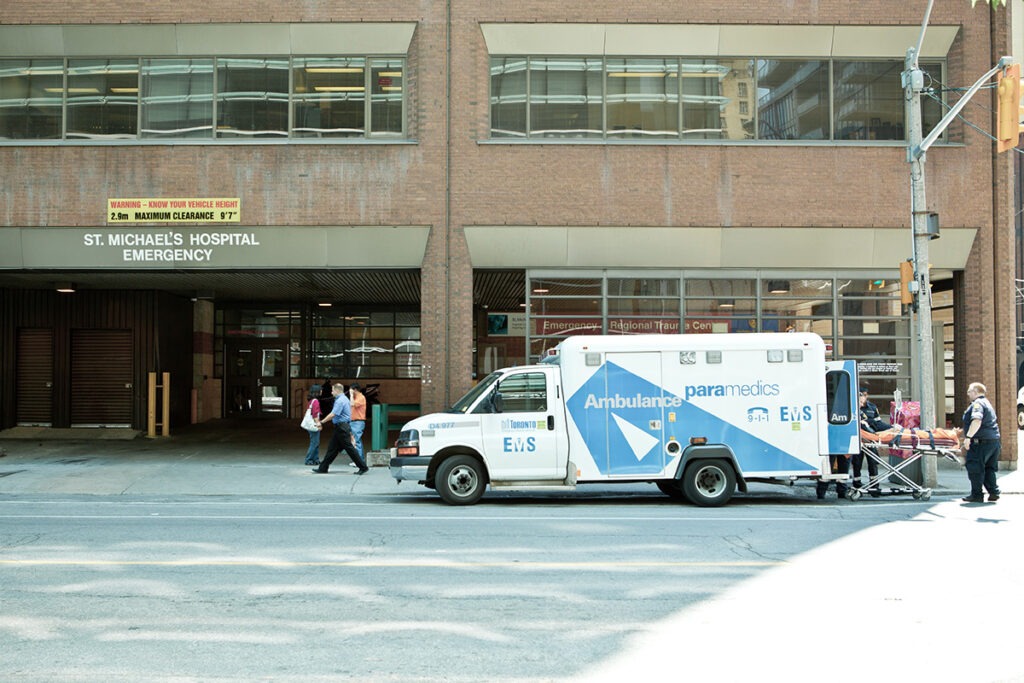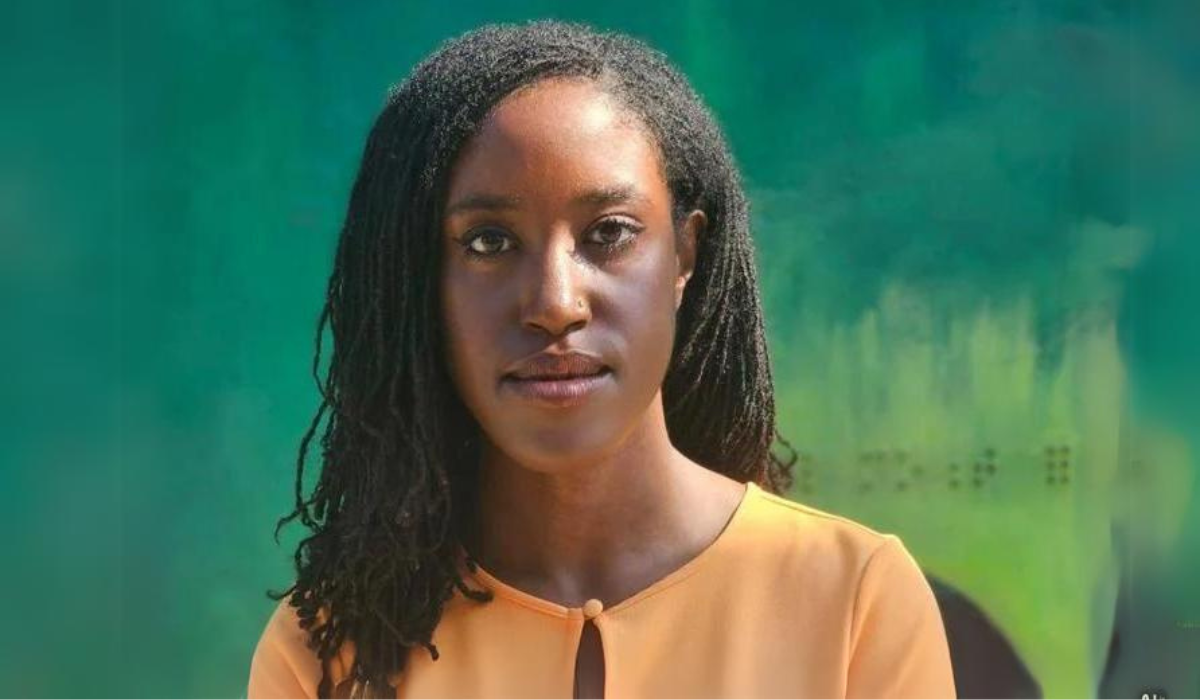The Toronto Star spoke with Dr. Tara Gomes about a new study published in CMAJ which looks at opioid overdose deaths across Canada between 2019 and 2021. The data showed that opioids were responsible for one in every four deaths among young adults between the ages of 20 and 39 during this time.
Month: April 2024
Canada cancels free HIV self-test program despite ‘alarming’ rise in infections
Dr. Sean Rourke recently spoke with the Toronto Star about the federal government’s decision to discontinue funding for HIV self-test kits in Canada. This comes during an alarming rise in positive HIV cases across the country.
Ontario’s second ‘smart’ harm reduction dispensing machine launches in Peterborough
Program led by St. Michael’s Hospital to dispense free HIV self-testing kits, harm reduction, sexual health supplies
April 9, 2024
A machine that dispenses free self-testing kits for HIV and COVID-19, naloxone kits, new needles, condoms and other essential harm reduction and sexual health supplies has launched in Peterborough, Ontario. This will be the second machine in Ontario and connects with the network of communities in New Brunswick and Manitoba.
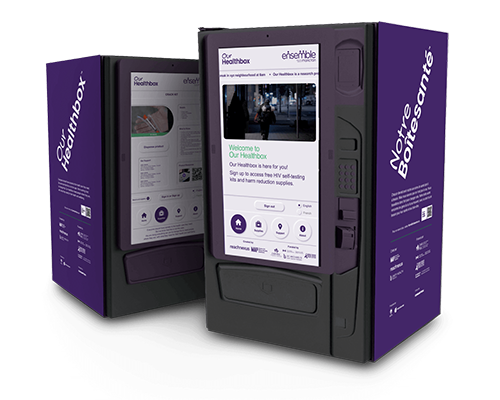
The ‘smart’ harm reduction machines, called Our Healthbox, work like a vending machine, and also provide health information and a service directory for people to find much-needed health care and supports right in their community. The initiative, led by researchers at St. Michael’s Hospital, a site of Unity Health Toronto, launched at the Trinity Community Centre in Peterborough on April 9. This is part of a plan to launch up to 50 machines across Canada in 2024. The goal is to install 100 machines over the next two years, and to evaluate how well they support people with their health needs.
Together, One City Peterborough and Peterborough Public Health with the support of Peterborough AIDS Resource Network (PARN) and are embarking on this exciting journey to help make the Peterborough community more equitable by increasing access to vital resources and supplies.
“One City is committed to making our community safer for everyone: our neighbours who live outdoors, our neighbours who use substances, and for the many whose lives are made more dangerous by society’s stigma, laws and policies,” said Christian Harvey, Executive Director, One City Peterborough. “Partnering with Peterborough Public Health and implementing Our Healthbox to increase access to resources and supplies the community needs, when they need them, feels like an important step in empowering people to define what safety means to them.”
“Our Healthbox will expand access to local services that allow people to take greater control of their health and well-being without the stigma and judgement that may accompany interactions with agencies and systems,” said Dr. Thomas Piggott, Medical Officer of Health/Chief Executive Officer, Peterborough Public Health. “We are thrilled to be bringing Our Healthbox to Peterborough and to foster a partnership with REACH Nexus and all the participating communities across the country. The machine’s ability to collect real-time data will allow us to be more responsive to the ever-evolving needs of our community. This data, coupled with the connection to harm reduction and wellness agencies across the country, positions us well to be implementing evidence-based best practices into our community.”
The initiative continues to help address the rise in new HIV cases in Canada and the country’s opioid crisis, which claims the lives of 21 Canadians each day. Providing access to harm reduction and health care supplies for free to people in spaces they frequent is a strategy experts consider to be key in reaching people who are underserved and who have barriers to accessing testing, harm reduction materials, treatment, care and prevention due to racism, homophobia, stigma and discrimination.
“Everyone in Canada deserves to have what they need, when they need it, to take care of their health. But we know that this is not the case, and so we are doing everything we can to bridge that gap in ways that work for each person in their community,” said Dr. Sean B. Rourke, a scientist at MAP Centre for Urban Health Solutions, a world-leading research centre housed at St. Michael’s Hospital. As Director of REACH Nexus at MAP, he leads a national research and public health group working on how to make sure everyone who needs access to testing (especially those who are undiagnosed), treatment and care for HIV, Hepatitis C and other sexually transmitted and blood-borne infections (e.g. syphilis) can get what they need to stay healthy and thrive.
Our Healthbox is the latest phase of work led by Dr. Rourke to connect those with complex health and social circumstances to testing, treatment and prevention. In 2019, Dr. Rourke spearheaded a cross-Canada clinical trial which evaluated and proved the accuracy of HIV-self tests – Health Canada approved the tests for use in November 2020 based on the results of the trial. In June 2022, Dr. Rourke launched the I’m Ready program, distributing more than 15,000 free HIV self-testing kits across Canada to reach people who are undiagnosed and get them connected to care, with the goal of identifying the factors that affect access to testing and care.
Dr. Rourke and his team will work with local community-based organizations, public health authorities, and health centres to host and maintain the Our Healthbox program. Each agency determines the supplies needed in the machines to serve the people in their community. The east coast implementation of Our Healthbox is funded by Even the Odds, a partnership between Staples Canada and MAP Centre for Urban Health Solutions.
Our Healthbox is funded by the Canadian Institutes of Health Research (CIHR), the Public Health Agency of Canada, the St. Michael’s Foundation, and Even the Odds (Staples Canada and MAP).
About St. Michael’s Hospital
St. Michael’s Hospital provides compassionate care to all who enter its doors. The hospital also provides outstanding medical education to future health care professionals in more than 27 academic disciplines. Critical care and trauma, heart disease, neurosurgery, diabetes, cancer care, care of the homeless and global health are among the Hospital’s recognized areas of expertise. Through the Keenan Research Centre and the Li Ka Shing International Healthcare Education Centre, which make up the Li Ka Shing Knowledge Institute, research and education at St. Michael’s Hospital are recognized and make an impact around the world. Founded in 1892, the hospital is fully affiliated with the University of Toronto.
About Unity Health Toronto
Unity Health Toronto, comprised of Providence Healthcare, St. Joseph’s Health Centre and St. Michael’s Hospital, works to advance the health of everyone in our urban communities and beyond. Our health network serves patients, residents and clients across the full spectrum of care, spanning primary care, secondary community care, tertiary and quaternary care services to post-acute through rehabilitation, palliative care and long-term care, while investing in world-class research and education. For more information, visit www.unityhealth.to.
About MAP Centre for Urban Health Solutions
MAP is a world-leading research centre dedicated to creating a healthier future for all. Through big-picture research and street-level solutions, our scientists tackle complex community health issues — many at the intersection of health and equity. Internationally recognized for groundbreaking science and innovation, MAP has changed the way the world understands the health consequences of social inequality in Canada. Together with our community and policy partners, MAP is charting the way to the world’s healthiest cities: places where people, communities, and the political, economic, social, environmental and health infrastructures come together so that everyone can thrive. MAP is part of the Li Ka Shing Knowledge Institute of St. Michael’s Hospital and is fully affiliated with the University of Toronto. St. Michael’s is a site of Unity Health Toronto, which also includes Providence Healthcare and St. Joseph’s Health Centre. For more information visit: www.maphealth.ca
About One City Peterborough and Peterborough Public Health
One City Peterborough is a nonprofit charitable organization formed in 2019, as a joining of Warming Room Community Ministries and Peterborough Reintegration Services. Built on the belief that everyone belongs, and it is together that we flourish, One City works to create stability and increase wellness. One City continues to focus on working together as a community to promote housing, community safety, and social inclusion in the City of Peterborough, by responding to immediate needs, breaking down barriers among us, and advocating for systemic change. Visit www.onecityptbo.ca to learn more.
Peterborough Public Health is the public health unit serving the residents throughout the City and County of Peterborough, as well as Curve Lake and Hiawatha First Nations. Guided by the Ontario Public Health Standards, PPH offers a wide range of programs and services to promote and protect the health of our community, with a focus on addressing the upstream causes of health and striving for equity. PPH has long supported harm reduction within our community including a needle exchange program (NEP) for over 25 years. Today, PPH continues to manage the local NEP, with the support of Peterborough AIDS Resource Network (PARN) which provides the front-line operations. Visit www.peterboroughpublichealth.ca to learn more.
Unity Health Toronto media contact: communications@unityhealth.to
One City Peterborough contact: Christian Harvey (Executive Director), charvey@onecityptbo.ca
Peterborough Public Health media contact: media@peterboroughpublichealth.ca
Toronto study finds race impacts opioid treatment
Sudbury.com covered new MAP research looking at the differences between ethno-racial groups in Ontario when looking at circumstances surrounding opioid overdose deaths. The study, lead by PhD candidate Tonya Campbell, also looked at access to addiction services and harm reduction.
A housing remedy for Canada’s hard-hit ERs
A small number of homeless patients make thousands of emergency room visits. Dr. Carolyn Snider and Dr. Stephen Hwang spoke with The Globe and Mail about the work being done to support people experiencing homelessness in the emergency department and cold weather-related injury research.
Ontario is in the midst of a drug crisis. These seven charts tell us who’s being hit hardest
Lead author Tonya Campbell
Tonya Campbell, PhD candidate at MAP, spoke with the Toronto Star about new research highlighting the disproportionate impact that opioid overdoses are having on Black, Asian and Latin American drug users. “These findings highlight that more research is needed to understand the crisis among racialized people, and they also emphasize that racialized communities need to have these long overdue conversations around drug use and surrounding stigma,” says Campbell.

